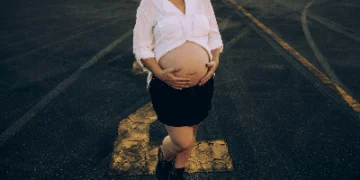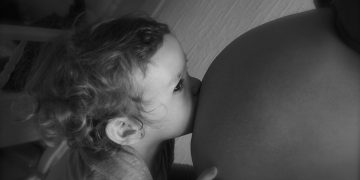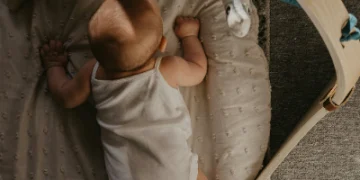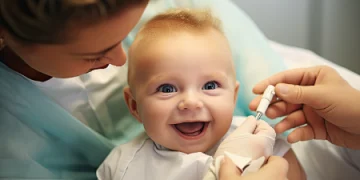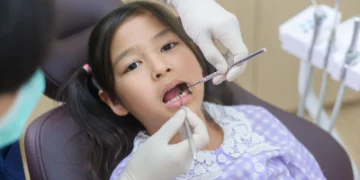Welcoming a newborn into your home is an incredibly exciting and joyous occasion. However, it also comes with a great deal of responsibility to ensure the safety and well-being of your precious bundle. As a parent, it is important to be aware of the essential newborn safety precautions that can help protect your baby from potential hazards. In this article, we will discuss some important safety tips that every parent should know to keep their little one safe and secure.
Creating a Safe Sleep Environment
One of the most important safety precautions for newborns is ensuring that they have a safe sleep environment. The American Academy of Pediatrics recommends that infants sleep on their backs in a crib that meets current safety standards. It is important to use a firm mattress and avoid placing soft bedding, pillows, or stuffed animals in the crib. Additionally, make sure to keep the crib free of any loose cords or wires that could pose a strangulation risk.
Preventing SIDS
Sudden Infant Death Syndrome (SIDS) is a leading cause of death in infants under one year of age. To reduce the risk of SIDS, it is important to follow safe sleep practices, such as placing your baby on their back to sleep and using a firm mattress with a fitted sheet. Avoid overheating your baby and make sure to keep the room at a comfortable temperature. It is also important to avoid smoking around your baby and to use a pacifier at naptime and bedtime, as this has been shown to reduce the risk of SIDS.
Babyproofing Your Home
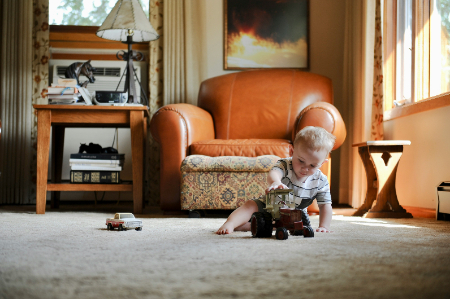
As your baby grows and becomes more mobile, it is important to babyproof your home to prevent accidents and injuries. This includes installing safety gates at the top and bottom of stairs, securing furniture to the wall to prevent tipping, and covering electrical outlets. Make sure to keep small objects out of reach of your baby, as they can pose a choking hazard. It is also important to keep cleaning products and other potentially toxic substances locked away to prevent accidental poisoning.
Safe Bathing Practices

Bathing your newborn can be a wonderful bonding experience, but it is important to follow safe bathing practices to prevent accidents. Always test the water temperature before placing your baby in the bath, and never leave your baby unattended in the tub, even for a moment. Use a non-slip mat in the tub to prevent falls, and make sure to support your baby’s head and neck at all times. After bath time, make sure to dry your baby thoroughly and dress them in clean, dry clothes to prevent hypothermia.
Car Seat Safety
Proper car seat safety is essential for protecting your newborn while traveling in a vehicle. Make sure to choose a car seat that is appropriate for your baby’s age, weight, and height, and always follow the manufacturer’s instructions for installation. Your baby should ride in a rear-facing car seat in the back seat of the vehicle until they are at least two years old. It is important to never leave your baby unattended in the car, even for a short period of time.
Safe Handling of Your Baby
When handling your newborn, it is important to support their head and neck at all times, as their neck muscles are not yet fully developed. Avoid shaking your baby or rough handling, as this can cause serious injury. Make sure to wash your hands before handling your baby to prevent the spread of germs, and avoid kissing your baby on the face to prevent the transmission of viruses.
Recognizing Signs of Illness
It is important to be able to recognize the signs of illness in your newborn and know when to seek medical attention. Some common signs of illness in infants include fever, difficulty breathing, vomiting, diarrhea, and lethargy. If you notice any of these symptoms in your baby, it is important to contact your pediatrician right away. Trust your instincts as a parent and seek medical help if you are concerned about your baby’s health.
Creating a Safe Environment for Your Baby
In addition to following these essential newborn safety precautions, it is important to create a safe and nurturing environment for your baby. This includes providing plenty of love and attention, breastfeeding if possible, and engaging in regular tummy time to help your baby develop strong muscles. Make sure to keep your baby’s vaccinations up to date to protect them from preventable diseases, and follow the guidance of your pediatrician on all aspects of your baby’s care.
Conclusion
Protecting your newborn is one of the most important responsibilities of parenthood. By following these essential safety precautions, you can help ensure that your precious bundle grows and thrives in a safe and secure environment. Remember to always stay informed and up to date on the latest safety guidelines, and don’t hesitate to reach out to your pediatrician if you have any concerns about your baby’s health and well-being. With proper care and attention, you can give your baby the best possible start in life.

